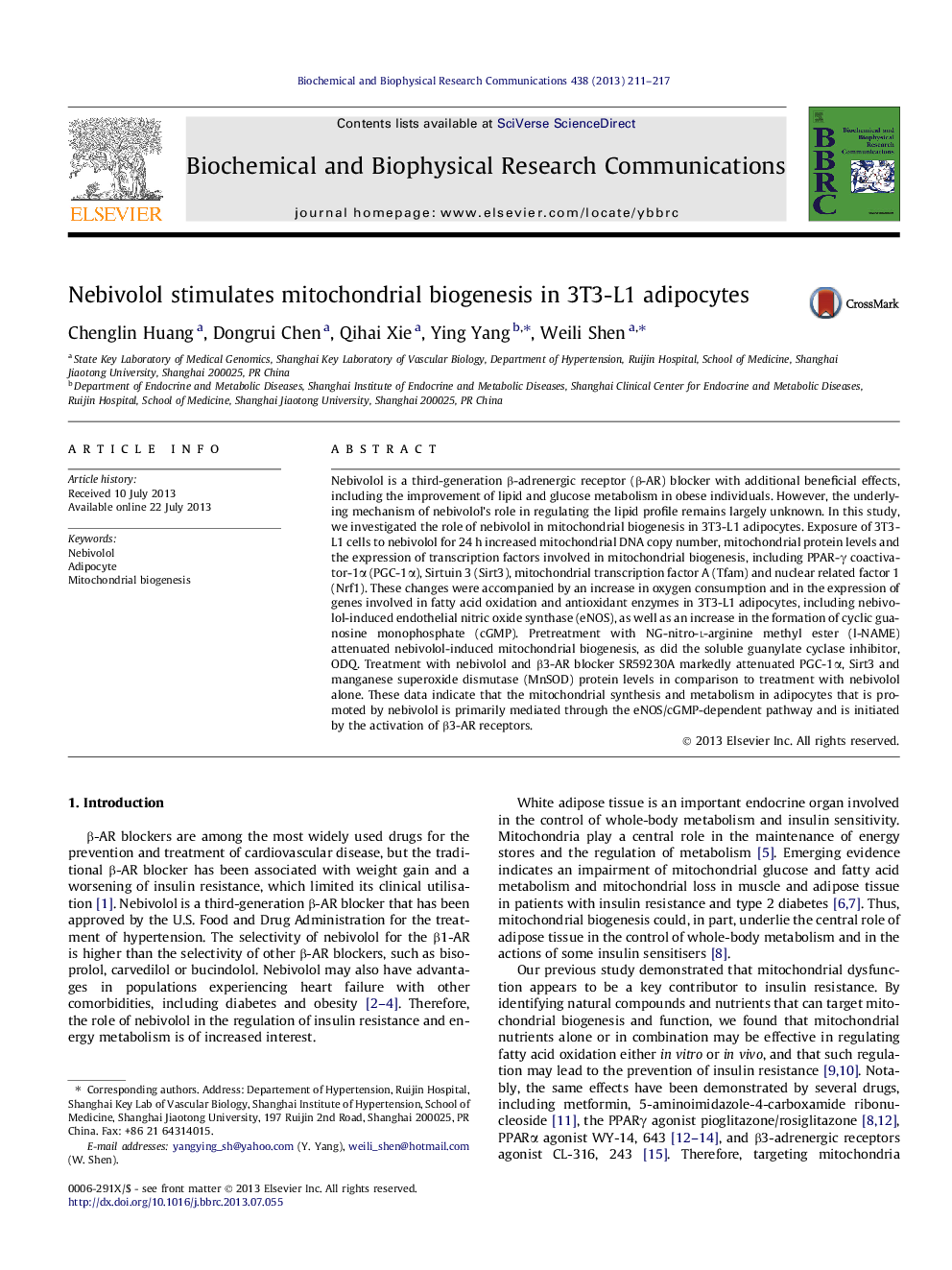| Article ID | Journal | Published Year | Pages | File Type |
|---|---|---|---|---|
| 10758493 | Biochemical and Biophysical Research Communications | 2013 | 7 Pages |
Abstract
Nebivolol is a third-generation β-adrenergic receptor (β-AR) blocker with additional beneficial effects, including the improvement of lipid and glucose metabolism in obese individuals. However, the underlying mechanism of nebivolol's role in regulating the lipid profile remains largely unknown. In this study, we investigated the role of nebivolol in mitochondrial biogenesis in 3T3-L1 adipocytes. Exposure of 3T3-L1 cells to nebivolol for 24 h increased mitochondrial DNA copy number, mitochondrial protein levels and the expression of transcription factors involved in mitochondrial biogenesis, including PPAR-γ coactivator-1α (PGC-1α), Sirtuin 3 (Sirt3), mitochondrial transcription factor A (Tfam) and nuclear related factor 1 (Nrf1). These changes were accompanied by an increase in oxygen consumption and in the expression of genes involved in fatty acid oxidation and antioxidant enzymes in 3T3-L1 adipocytes, including nebivolol-induced endothelial nitric oxide synthase (eNOS), as well as an increase in the formation of cyclic guanosine monophosphate (cGMP). Pretreatment with NG-nitro-l-arginine methyl ester (l-NAME) attenuated nebivolol-induced mitochondrial biogenesis, as did the soluble guanylate cyclase inhibitor, ODQ. Treatment with nebivolol and β3-AR blocker SR59230A markedly attenuated PGC-1α, Sirt3 and manganese superoxide dismutase (MnSOD) protein levels in comparison to treatment with nebivolol alone. These data indicate that the mitochondrial synthesis and metabolism in adipocytes that is promoted by nebivolol is primarily mediated through the eNOS/cGMP-dependent pathway and is initiated by the activation of β3-AR receptors.
Related Topics
Life Sciences
Biochemistry, Genetics and Molecular Biology
Biochemistry
Authors
Chenglin Huang, Dongrui Chen, Qihai Xie, Ying Yang, Weili Shen,
